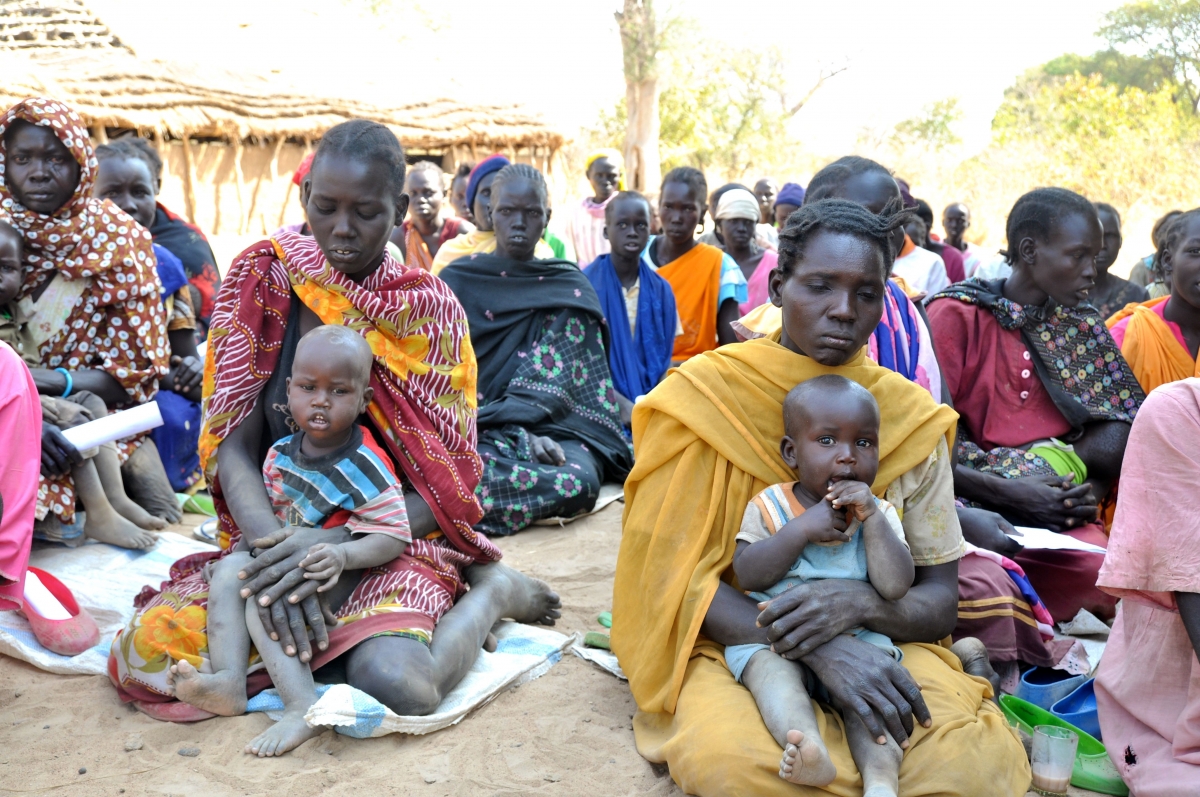
Photo: South Sudanese women, returning home after being freed from slavery.
Photo Source: Michele Clark
Chairman Mao said that women hold up half the sky.
I know this to be true.
My mother’s mother, Tekla, was an immigrant from Poland. She labored with her husband to turn a small patch of land into one of the largest dairy farms in upstate New York. My father’s mother, Anna, also an immigrant with barely 10 words of English to her name, scrubbed floors on her hands and knees in Marcellus casket factory after her husband died; he fell into a snowdrift in an alcoholic stupor and this was the only way she could put her two sons through school. Perhaps she held up more than half the sky in her small corner of the universe.
But Anna never had a voice in determining how much she would get paid. And Tekla never sat at the table to negotiate the price of milk.
The world over, women work as hard, or harder than, men. In Bangladesh, over 85 percent of those killed in the factory collapse last May were women. They had no voice in negotiating their working conditions. Some reported cracked support columns and other signs of danger. Their managers told them to keep working or be fired. In the West, we can inherit our fathers’ estates, own property in our names, and travel without the consent of a male relative. We are also still the primary caretakers of our homes and families. Ninety seven out of 100 rapists in this country will go free, and one in four of us will experience some form of violence or sexual abuse in our own homes.
And all of us live in political systems where 80 percent or more of the voices making one hundred percent of the decisions that affect us economically, politically and socially are men.
I believe in the strength, the power, and the pressing necessity of a woman’s voice. Be it in our place of work or worship, in the courts, the boardroom and the halls of politics, I believe that if I am holding up half the sky, I should have that much voice.
I believe in a strong voice, tempered with reason and understanding, grounded in fact and science, motivated by compassion and a genuine concern for the common good. I believe that, as women hold up half the sky, we nurture most of what lies beneath in ways so very large and small. As my mother, the immigrant farmer’s daughter, used to say, leave a place a little bit nicer when you leave.
I have traveled to the jungles of Peru, the Delta region of Egypt and the camps of returning slaves in Sudan to talk to women who have been trafficked and abused, to return to advocate for better laws and wiser policy before my own government. People would tell me, “how wonderful that you are being a voice for the voiceless,” but I never felt any gratification from their comments. These women, as all women, have a voice. It has been silenced.
I teach because I believe in a woman’s voice. I believe that, in the right environment, motivated by one another, with structure, challenge, and the inspiration of other women, women will find their own voices, one that will be heard under all the sky.

